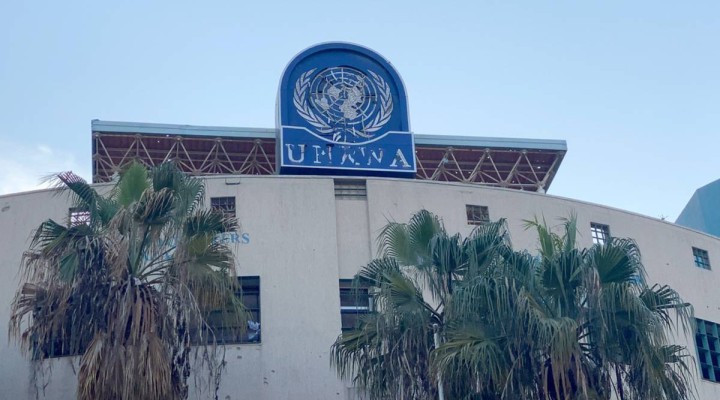Palestinians are paying the price for the UN’s colonial complicity with Israel

The UN Relief and Works Agency for Palestine Refugees was established in December 1949 and commenced its operations in May 1950, supposedly until a solution to what the UN termed “the Palestinian refugee problem” is found. In those early days of Israeli colonisation, the UN had the option to oppose colonialism in Palestine. Instead, it opted to set up a humanitarian framework for Palestinians while allowing Israel to expand further into Palestinian territory.
Let us for a moment take note of three aspects of this issue: Israel’s illegal colonisation, humanitarian aid, and the legitimate Palestinian right of return. Humanitarian aid cannot compensate Palestinians for Israel’s settler-colonial expansion, and neither has it aided the prospects for the Palestinian right of return.
Prior to Israel’s genocide in Gaza, humanitarian aid for the Palestinians was already insufficient. The UN’s selective amnesia needs to be corrected. Humanitarian aid is meant as a temporary alleviation of distress, not a decades-long project existing alongside Israel’s colonial expansion. Besides this intentional complicity in ensuring Palestinians do not get their basic needs met in order to prevent them from exercising their legitimate rights of resistance and liberation, Palestinians in Gaza were also subjected to restrictions on humanitarian aid and deprived of adequate supplies. That was before 7 October. Israel has now shifted from the policy of “putting Palestinians on a diet,” as Dov Weissglas once said so shamelessly, to mass starvation. Snipers have targeted trucks carrying aid; settlers have blocked aid from reaching Gaza; and many Palestinians have been killed by Israel while trying to get some meagre supplies. The first victims of Israel’s genocidal mass starvation plan in action have been announced, and all Guterres can say is, “Humanitarian aid is still completely insufficient.”
Israel has laid bare the cruelty of the UN’s humanitarian paradigm by attacking both humanitarian aid and the Palestinian people for decades. Yet even now, with evidence of mass starvation as a tool of genocide, Guterres’s only fear is that, “An all-out Israeli offensive in Rafah… would put the final nail in the coffin of our aid programmes.” Guterres, your humanitarian paradigm was doomed from the start. How does it feel to see the humanitarian façade crumbling and have no Plan B, other than relying on Israel to finish the job, to put it crudely? Palestinians, however, have had a Plan B all along that should have been Plan A from the beginning: decolonisation. The UN has nowhere to turn if the humanitarian paradigm is destroyed, other than align itself further with Israel. Unfortunately, the Palestinians will continue to pay the price for this colonial complicity.
https://www.middleeastmonitor.com/20240229-palestinians-are-paying-the-price-for-the-uns-colonial-complicity-with-israel/
 TheAltWorld
TheAltWorld 
0 thoughts on “Palestinians are paying the price for the UN’s colonial complicity with Israel”